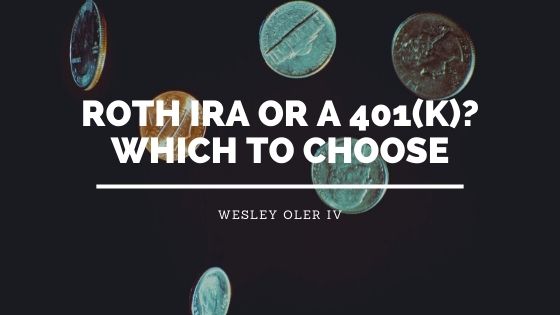Two of the best options Americans have for saving for retirement are the Roth IRA and the 401(k). Both offer tax advantages. Both allow American workers to save for the future. Which is better depends upon a person’s individual situation.
Savings Limits
Those who have not yet hit age 50 can save quite a bit of money in both a Roth IRA and a 401(k). As of 2020, younger Americans can save up to $6,000 in a Roth IRA, and this money has to be earned income. Those who save in a 401(k) can put $19,500 away for their golden years. Workers who have passed 50 years old can save additional catch-up contributions. People who choose a Roth IRA can save $1,000 more, while those who opt for a 401(k) can save an additional $6,500.
Income Limits
Those with higher incomes are limited in their ability to save in a Roth IRA. Individuals can make $139,000, and married couples can make $206,000 before the ability to save in a Roth IRA can start to phase out. Those who make more than the maximum income will need to save in a 401(k).
Tax Treatment
Saving in a Roth IRA allows for tax-free growth and tax-free withdrawals. However, workers who decide to save with a Roth IRA will contribute on an after-tax basis. That means they will need to pay the tax on their savings the same year that they save the money. Contributions to a traditional 401(k) are made on a pre-tax basis. That means that the government will tax withdrawals at the taxpayer’s marginal tax bracket. This could mean that more taxes will come out for those who decide to defer their taxes by saving in a 401(k)
Employer Matching
Some employers contribute matching funds to 401(k)plans. Common matching levels are 50% or 100% for the first 6% of an employee’s salary. An employee making $50,000 could save $3,000 to hit the 6% mark. A dollar-for-dollar employer match would double that to $6,000. Those who can take advantage of an employer match should opt for the 401(k) plan, at least to the maximum match. A Roth IRA does not come with this benefit.
Those who have a 401(k) available will frequently do better in the long run because of employer matching funds. Those who do not have access to these matching funds might opt for a Roth IRA. This latter option provides more options and control for investing, and it can also allow for tax-free withdrawals in the future.
